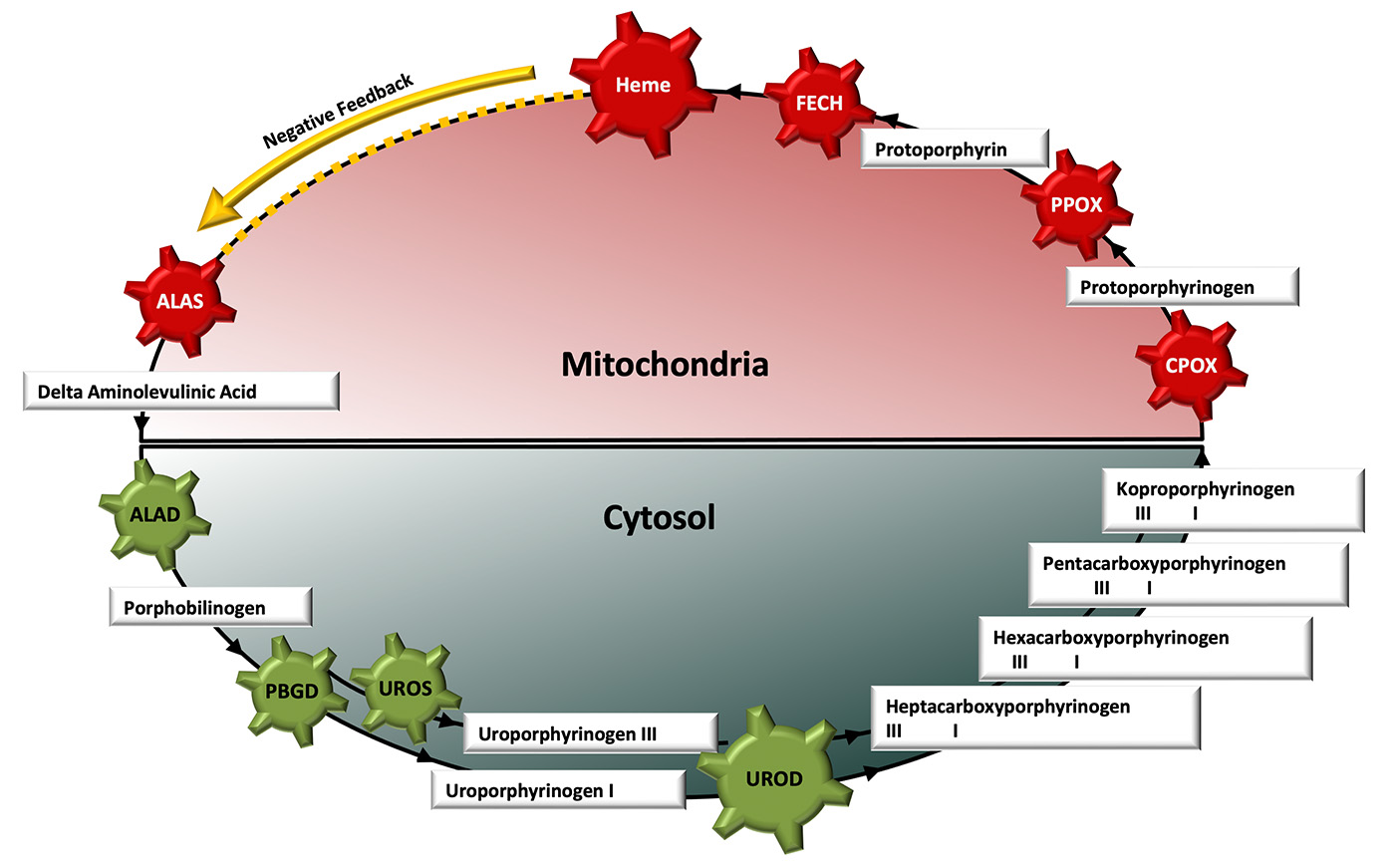Interventions in IEM (Inborn Error of Metabolism) could be undertaken at different levels in the chain of cause and effect. This could be a curative, therapeutic or symptomatic measurement:
- Curative and therapeutic interventions at genetic level in IEM have turned out to be difficult with unpredictable outcomes. Methods involving gene-silencing and gene-therapy are an active field of research and development.
- Finding an alternative path is an established management technique in a variety of IEM. The method is based on stimulus-response mechanism of the affected pathway. A bypass mechanism is typically implemented through a different input signal (stimulus) which actuates an alternative pathway and deflects the dysfunctional track. This is however technically not feasible for every IEM.
- Enzyme-replacement therapies are available for a minor number of IEM to substitute what the biochemical pathway can no longer produce sufficiently. Depending on the enzyme involved, this could be a very costly intervention and is not routinely offered.
- Continuous drainage of the toxic intermediate metabolites could alleviate the clinical manifestation and slow the progression rate down. Surgical intervention is one last resort when the build-up of intermediate substrates could not be effectively disrupted or decelerated.
We are developing therapeutic and diagnostic procedures for a class of IEM, based on the stimulus-response mechanism of the biochemical pathways involved. The target of proposed method are the aerobic pathways of energy metabolism which are routed inside mitochondria. The IEM affecting the mitochondrial pathway are known to be by and large untouchable. The applied counter-steering mechanism has not been an intensive field of exploration up to now and has not received much of attention despite its particular characteristics. The proposed technique is engineered to take effect at the actuation mechanism of the defective metabolic pathway with a negative feedback closed-loop control system, which exists inherently in the biochemical pathway.
In contrast to currently available treatment methods with symptomatic achievements, our proposed technique has a therapeutic purpose. Our research and development strive to achieve total or partial regression of the clinical manifestations. The methodology could find its potential application in a class of medical conditions, in which a defect or malfunction in the mitochondrial pathway is known to be the primary cause, or is suspected to be the likely cause of the illness. Conditions in which mitochondrial malfunction are induced in a secondary manner might take advantage of the method as well, so long as the primary cause is not adversely influenced by the this metabolic management technique. This includes but is not limited to:
- Primary mitochondrial disorders
- Alzheimer‘s disease, Parkinson‘s disease, Amyotrophic lateral sclerosis (ALS), Huntington's chorea, Friedreich ataxia, Uridine-responsive epileptic encephalopathy, MEGDEL syndrome (3-methylglutaconic aciduria (MEG), deafness (D), encephalopathy (E), and Leigh-like disease (L)), Myopathy, lactic acidosis and sideroblastic anaemia (MLASA), Occipital horn syndrome, Pearson's, Perrault, Ethylmalonic acid encephalopathy (EE), Methylglutaconic aciduria, Familial bilateral striatal necrosis, Wolfram disorder, Refractory epilepsy associated with failure to thrive, Diabetes mellitus with failure to thrive and acidaemia, Renal tubular acidosis, Mitochondrial dysfunction in Autism spectrum disorders, and Migraine-like headache, or a combination thereof.
- Intensive care medicine
We are actively seeking partnerships for our R&D projects. Our engineering expertise would like to combine forces with passionate and dedicated partners and scientists from fields of biochemistry, clinical chemistry, neurological medicine, metabolic and intensive care medicine. We value multidisciplinary teamwork and believe we could reach our milestones through a interdisciplinary network of open and talented partners.
Systemic clinical trials, R&D cooperation and consultation for biochemical reprogramming could be undertaken upon request and under corporate agreements.
Please contact us at





